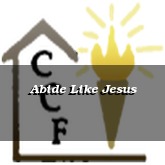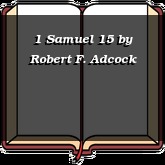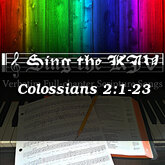"I know how to abound."
—Philippians 4:12
There are many who know "how to be abased" who have not learned "how to abound." When they are set upon the top of a pinnacle their heads grow dizzy, and they are ready to fall. The Christian far oftener disgraces his profession in prosperity than in adversity. It is a dangerous thing to be prosperous. The crucible of adversity is a less severe trial to the Christian than the refining pot of prosperity. Oh, what leanness of soul and neglect of spiritual things have been brought on through the very mercies and bounties of God! Yet this is not a matter of necessity, for the apostle tells us that he knew how to abound. When he had much he knew how to use it. Abundant grace enabled him to bear abundant prosperity. When he had a full sail he was loaded with much ballast, and so floated safely. It needs more than human skill to carry the brimming cup of mortal joy with a steady hand, yet Paul had learned that skill, for he declares, "In all things I am instructed both to be full and to be hungry." It is a divine lesson to know how to be full, for the Israelites were full once, but while the flesh was yet in their mouth, the wrath of God came upon them. Many have asked for mercies that they might satisfy their own hearts' lust. Fulness of bread has often made fulness of blood, and that has brought on wantonness of spirit. When we have much of God's providential mercies, it often happens that we have but little of God's grace, and little gratitude for the bounties we have received. We are full and we forget God: satisfied with earth, we are content to do without heaven. Rest assured it is harder to know how to be full than it is to know how to be hungry-so desperate is the tendency of human nature to pride and forgetfulness of God. Take care that you ask in your prayers that God would teach you "how to be full."
"Let not the gifts thy love bestows
Estrange our hearts from thee."
Ⓒ 1996-2021 Heartlight, Inc. This material may not be reproduced in part or whole for commercial use without written consent. Written by Charles H. Spurgeon.

Continue reading...
—Philippians 4:12
Morning Thought
There are many who know "how to be abased" who have not learned "how to abound." When they are set upon the top of a pinnacle their heads grow dizzy, and they are ready to fall. The Christian far oftener disgraces his profession in prosperity than in adversity. It is a dangerous thing to be prosperous. The crucible of adversity is a less severe trial to the Christian than the refining pot of prosperity. Oh, what leanness of soul and neglect of spiritual things have been brought on through the very mercies and bounties of God! Yet this is not a matter of necessity, for the apostle tells us that he knew how to abound. When he had much he knew how to use it. Abundant grace enabled him to bear abundant prosperity. When he had a full sail he was loaded with much ballast, and so floated safely. It needs more than human skill to carry the brimming cup of mortal joy with a steady hand, yet Paul had learned that skill, for he declares, "In all things I am instructed both to be full and to be hungry." It is a divine lesson to know how to be full, for the Israelites were full once, but while the flesh was yet in their mouth, the wrath of God came upon them. Many have asked for mercies that they might satisfy their own hearts' lust. Fulness of bread has often made fulness of blood, and that has brought on wantonness of spirit. When we have much of God's providential mercies, it often happens that we have but little of God's grace, and little gratitude for the bounties we have received. We are full and we forget God: satisfied with earth, we are content to do without heaven. Rest assured it is harder to know how to be full than it is to know how to be hungry-so desperate is the tendency of human nature to pride and forgetfulness of God. Take care that you ask in your prayers that God would teach you "how to be full."
"Let not the gifts thy love bestows
Estrange our hearts from thee."
Ⓒ 1996-2021 Heartlight, Inc. This material may not be reproduced in part or whole for commercial use without written consent. Written by Charles H. Spurgeon.
Continue reading...


 **Prayer Updates:**
**Prayer Updates:**
 @SisterAmbria is hoping for a single room dorm closer to her classes. Let's pray for her request to be granted.
@SisterAmbria is hoping for a single room dorm closer to her classes. Let's pray for her request to be granted.












 Also, let's pray for
Also, let's pray for  Let's also support @SisterAmbria's dorm request.
Let's also support @SisterAmbria's dorm request.  God hears our prayers!
God hears our prayers! 
 **Prayer Updates!**
**Prayer Updates!**  Let's lift up **
Let's lift up ** **
**
 **
**


